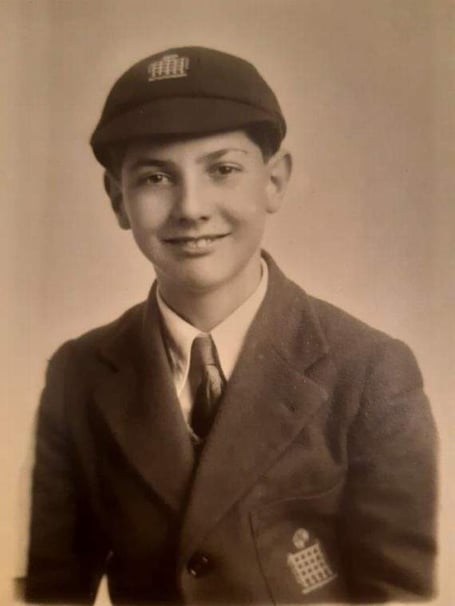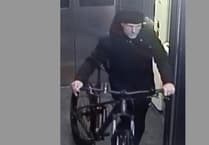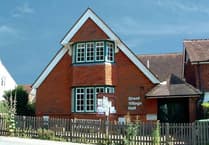Born in 1931, John Digby Lovell of Sheet was sent to Emanuel School in Battersea, London. However, he was evacuated during the Second World War Blitz of London to Churcher’s College before returning to Emanuel after the war ended to sit his exams.
On leaving school, John worked on the farm his parents bought after the war, Lords Farm in Sheet.
He was an only child, and would never leave the farm for any length of time until 2017 when a fall meant he spent time in Queen Alexandra Hospital in Portsmouth.
He briefly went home, but was diagnosed with rapidly-worsening dementia and died aged 89 on Saturday, May 8.
In the 1960s, he started a demolition company, based mainly in Portsmouth and the surrounding area.
His company was responsible for the demolition of many buildings – and doors, a staircase and beech flooring from an old cinema demolition were recycled and used in his house.
He also knocked down the Dolphin Hotel opposite Petersfield War Memorial in the High Street; the Dolphin Court apartment block was built on the site.
And using dynamite, John blew up Basing Park House in Privett, after his 500kg crane wrecking ball only bounced off the walls.
In the 1970s he turned Lords Farm, at the junction of Long Road and Waterworks Road, into a thriving repair centre, servicing and mending farm machinery.
Then in the 1980s he started a successful vehicle breakdown recovery company that ran for many years as well.
A lifelong friend recalls receiving a telephone call from Lovell, asking her to go to a road accident near Butser Hill involving an overturned horse box.
She was told to take her horse box – and they moved the horses to one of John’s fields until the owners collected them.
He was also asked to supply old cars for a rescue scene in the TV show London’s Burning, filmed under a bridge of the new A3 Petersfield bypass before it was opened.
Part of the bypass went across his land and he claimed one of his old combine harvesters and some expensive reclaimed York stone salvaged from one of his demolition jobs had been buried under a slip road.
Upon retirement, John began collecting memorabilia, primarily – but not exclusively – from farm sales and auctions, adding to his collection of old farm machinery.
Lovell had a keen eye – his ardent skill of collecting, allied with a refusal to throw anything away, meant he soon had to turn his biggest barn into a museum.
He then filled up every other outbuilding, stable, shed, forge, car port, garage, shepherd’s hut, apple orchard and field, and every room in his house, with his vast collection!
His farm resembled an overgrown, untidy junk yard patrolled by Alsatian dogs. However, an astute and discerning observer could soon spot a serious collection of interesting British mechanical engineering heritage, models and memorabilia.
So interesting that on the May bank holiday he would hold an open day, and Lords Farm Vintage Fair attracted other like-minded enthusiasts from far and wide.
Each year he would collect money for a charity or good cause and, over the 20 or so years of open days, tens of thousands of pounds were raised for local causes.
A great chatterbox when you knew him, John was a passionate animal lover, often seen smartly dressed riding his horse through the hangers to Froxfield or Priors Dean.
He also fundraised for the Alsatian dog rescue charity, and rehoused and homed scores of unwanted Alsatians.
One of a kind, John Digby Lovell, a slight, shy man, was quietly larger than life, with many interests.
But I will fondly remember him as one of the kindest people I ever met.
Toby Flack




